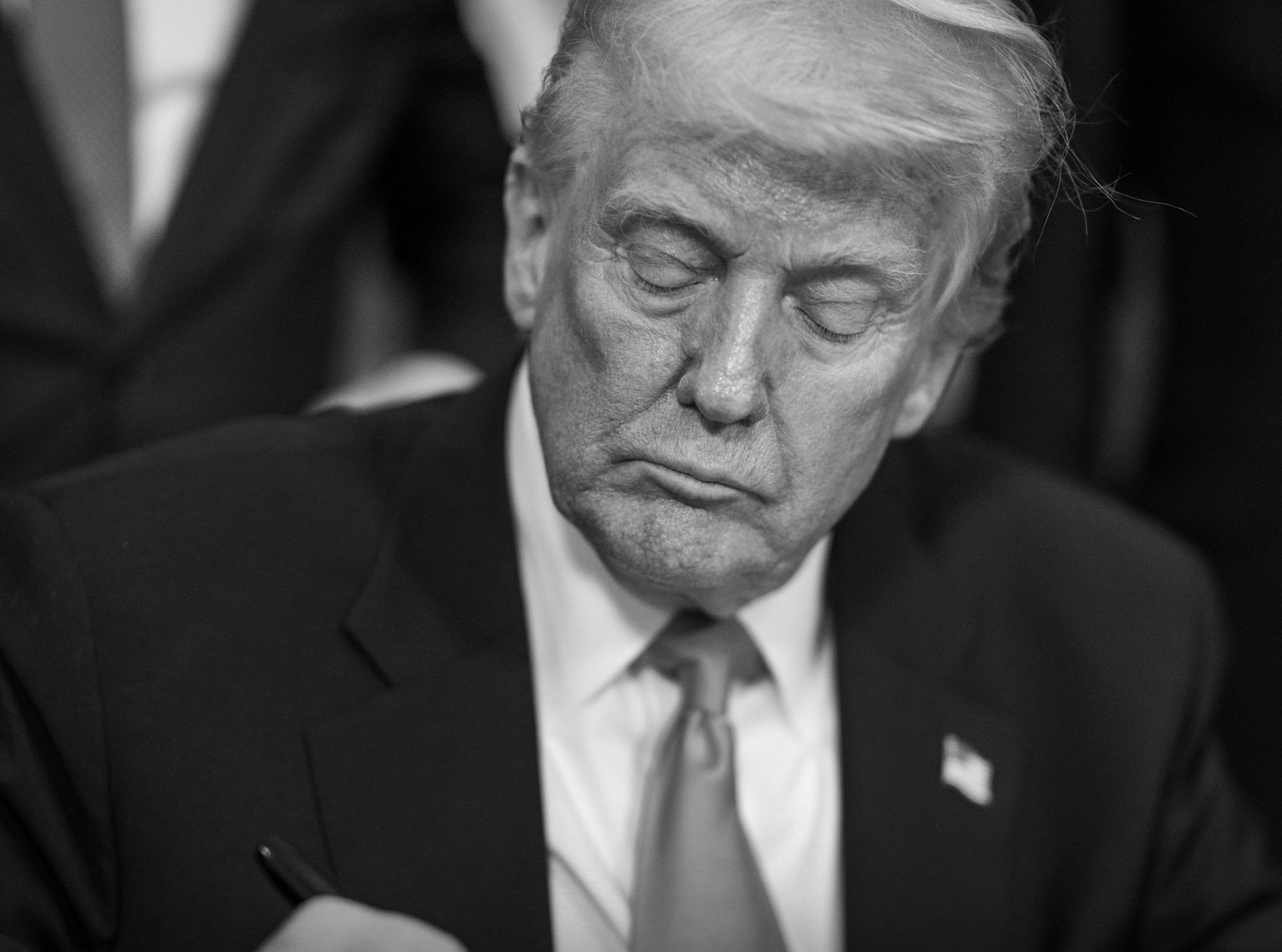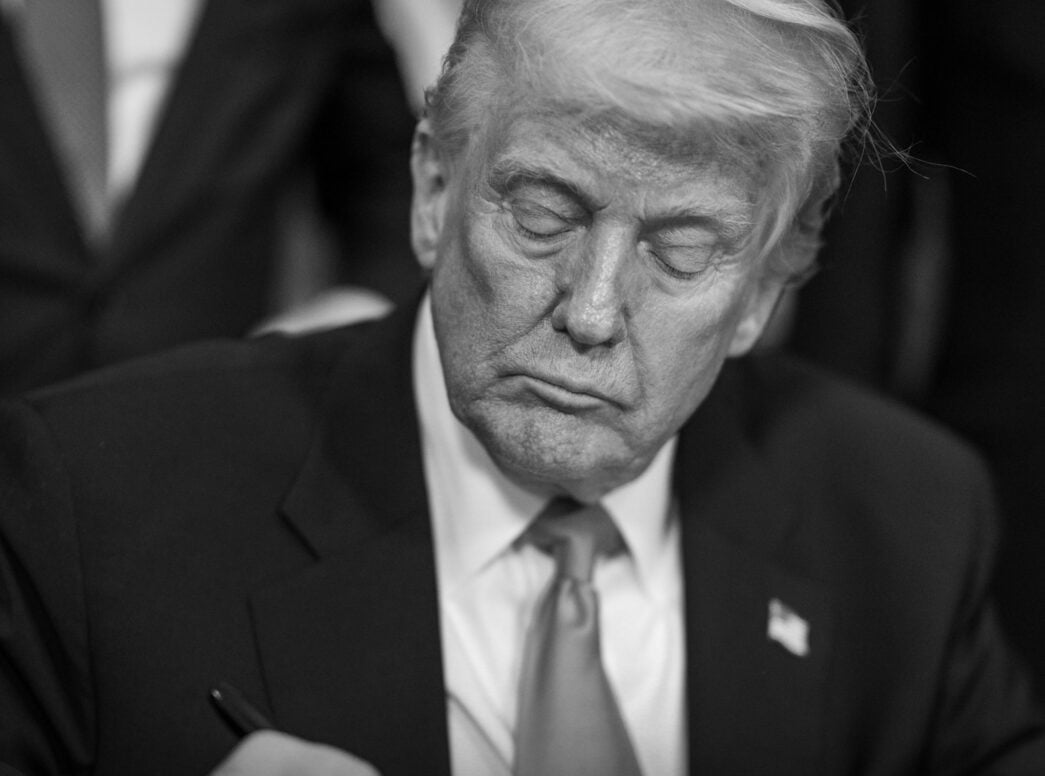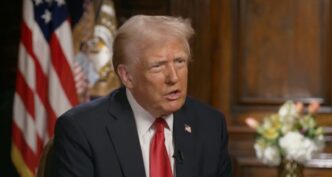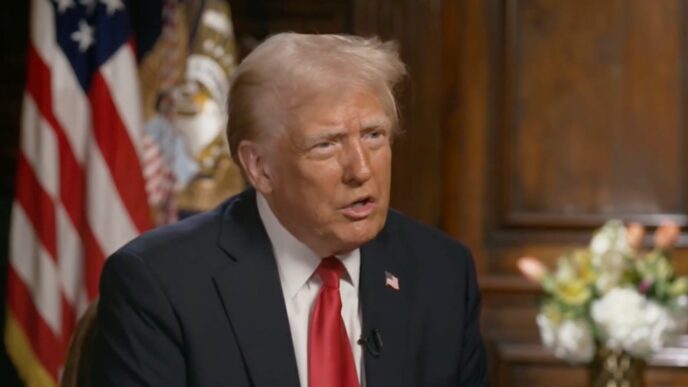Donald Trump
There is a predatory refrain being rehearsed in Washington and, alarmingly, some Nigerians are humming along. The revived claim of a “Christian genocide in Nigeria,” amplified most notably by President Donald Trump and Senator Ted Cruz, and echoed by local voices looking for easy absolution or political advantage, is not a plea for mercy. It is a geopolitical instrument masquerading as moral outrage: spectacle dressed as salvation.
Let us be blunt. The bloodletting tearing at the fabric of Nigeria is a national catastrophe, not a denominational one. Bandits, terrorists, and criminal gangs do not inspect identity cards or baptismal certificates before they kill. They target mosques as well as churches, and even schools. Their carnage claims farmers, traders, students, worshippers and commuters — Muslims, Christians, adherents of traditional faiths, and the non-religious. Pain in Nigeria refuses to be baptized; it spills red, and is indiscriminate.
That does not mean grief lacks faith. It only means that relief must be accurate. When we mislabel the enemy, we arm the real predators with a pretext and hand them the map of our divisions.
The pattern is ugly and painfully familiar. International actors, whether ideologues, empire builders or cynical politicos — find an angle, amplifying a tear in a country’s social fabric until it becomes a rip through sovereignty. First, a label: “failed state,” “religious persecution,” “genocide.” Then a chorus of horror. Then the “solution”: intervention, military or otherwise, clothed in humanitarian language. By the time the international machinery parks its boots on local soil, the country’s autonomy has contracted and its resources are exposed to plunder. Libya is the recent schoolbook example; Iraq and Afghanistan remain graveyard lessons.
Advertisement
History offers a cautionary footnote from another theatre: in 2003 Britain’s Dr. David Kelly, a weapons expert who raised probing questions about the evidence used to justify the Iraq invasion, found himself at the center of a storm. Kelly’s honesty about how intelligence had been presented to the public invited scrutiny he did not bargain for, and he became a victim of a relentless political machine. His exposure, and the subsequent furore that led to his tragic death, crystallized how dissenting truth-tellers are punished or sidelined when state narratives harden into policy. Around the same time, Clare Short, who had served as Britain’s Secretary of State for International Development, resigned in protest at the way her government had pressed the case for war in Iraq. Short’s principled exit was a rare public act of conscience in an atmosphere where caution and complication had been short-circuited by the rush to conflict.
The Kelly and Short episodes are not identical to the Nigerian situation. The contexts differ, but they illuminate a shared dynamic: when powerful actors push a simple, mobilizing narrative, inconvenient truths and nuanced solutions are discarded. Those who raise alarms about misuse of intelligence or the real costs of intervention risk being silenced, sidelined, or worse. That is why any foreign voice that rushes to diagnose Nigeria’s crisis as a single-faith genocide should be met with healthy skepticism — not because their concern is necessarily illegitimate, but because sudden, selective attention is often traced to strategic interest rather than sustained humanitarian commitment.
If President Trump truly wanted to help Nigeria defeat the criminal networks that terrorize its people, he would invest in sustained, multilateral cooperation: intelligence sharing, training for professionalized security forces, judicial support, and targeted aid that strengthens communities and livelihoods — not pontificate about invasions or brandish the threat of bombs. Bombs are a blunt instrument that produce blowback; occupation is a brief headline and a long humanitarian nightmare. The U.S. experience in Afghanistan, Iraq and Libya should be a cautionary calculus, not a template.
Advertisement
Nor should we ignore hypocrisy. The same voices loudly proclaiming concern for Nigerian Christians have been conspicuously reticent about other crises where actual civilian suffering is visible and sustained. Selective empathy, being vocal about one body of victims, silent about another — smells less of moral urgency but more of political choreography.
None of this absolves the Nigerian ruling class. Our leaders, in multiple administrations and across parties, have failed spectacularly to uphold the most basic social contract: security for citizens. Corruption, negligence, and complicity have hollowed out institutions, leaving communities exposed. In some quarters, insecurity has become a darkly lucrative industry — a theory that gains plausibility when patterns of attack, protection rackets, skewed procurement and opaque logistics are laid side by side. The state’s dereliction is the primary wound; foreign opportunism preys upon a people already bleeding.
So what is the right frame? Call this what it is: a multi-dimensional campaign of violence — guerrilla war, criminality, communal conflict — that targets Nigerians as Nigerians. Frame it as a religious war, and you hand the killers their strategic advantage: the alienation of communities whose cooperation is essential to rooting out insurgency. Insist that it is a singular sectarian genocide, and you risk turning moderates into enemies, insulating the criminals with the cloak of purported righteousness. Unity, nuanced diagnosis, and local ownership of solutions are non-negotiable.
To my fellow citizens on social media: exercise discipline. A careless hashtag can become a rallying cry for foreign designs. Every post that amplifies simplistic myths chips away at the coalition we need to beat this threat. To my colleagues in the press: your headlines matter. A headline cast as “Gunmen abduct five, including a pastor,” that emphasizes only the cleric’s faith while muting the religious identities of other victims, participates in distortion. Journalism must illumine complexity, not traffic in inflammatory shorthand.
Advertisement
There is an uncomfortable possibility in all this: perhaps the sudden foreign spotlight — however self-interested, will jolt our government into action. If that is the outcome, then let us harness the discomfort politically. Let international pressure be converted into domestic accountability: better intelligence, more humane and effective security operations, prosecutorial effectiveness, protection for vulnerable communities, and transparency in procurement and logistics.
But make no mistake: no external army will be a panacea. When foreign forces leave, as they have elsewhere, they often leave a vacuum. If we trade our sovereignty for a temporary sense of security, we will discover the cost is far higher than the headline that justified it.
I do acknowledge why the Christians would be right to feel targeted, considering the proclaimed affiliation of the terrorists. The selective silence of some prominent Muslim figures in the North, and elsewhere across the country, did not help assuage their feelings. The silence of prominent traditional and religious figures in the North, when Deborah Yakubu was gruesomely murdered by a group of extremist Muslim students, for alleged blasphemy, was too deafening, compared to how they responded, when the “Uromi killing” which victims were all from the North, happened. Do I need to remind you of the criminal silence by these same figures, when people in Benue and Plateau states get slaughtered in cold blood? Atiku Abubakar was even forced to delete a tweet condemning the lynching of Deborah, by some northern Netizens. These do not speak well of these national figures. If I were in the shoes of the Christians, I would definitely feel same how as a human being. However, the Christians and Muslims(who are neither terrorists nor bandits) need one another to defeat the menace of insecurity being orchestrated by these outlaws. The city of Kaduna is a glowing example of how unity between the adherents of the two faiths can ensure that amity replaces bitter hostility. And in the interest of that, I implore my Christian compatriots not to fall for any labelling that may alienate the Muslims whose co-operation is needed, for a more robust assault against these enemies of our land, and of humanity. None of these groups of Nigerians can do it alone. Not even with the backing of the US.
Nigeria’s war is not Christians versus Muslims, or the State versus Christians, contrary to what Trump and Cruz want us to believe. It is nuanced. It is Nigerians versus those who profit from perpetual disorder. We must resist being conscripted into a narrative that fractures the very unity required to defeat the enemies of our future.
Advertisement
If we are to emerge whole, we must name the problem precisely, hold our leaders to account, protect one another across faith and tribe, and reject foreign actors whose interest is transactional. Let us grieve every life taken, regardless of creed, and direct our collective fury at the root causes: failed governance, corruption, impunity, and the criminal networks that feed on them.
History will judge whether we rallied as one people or scattered under the false promise of salvation. Let us choose, deliberately and fiercely, to be a nation that solves its own wounds, not one that is rebranded and parcelled out to the highest geopolitical bidder. Imagine China who is no saint, coming out as a counterforce against the US. Beijing warns, it won’t tolerate any foreign interference in Nigeria’s internal affairs by any foreign government. Meanwhile, it is not about Nigeria or Nigerians. Rather, it is about their respective selfish interests. Nigerians must, therefore, think and come up with a strategy that will strengthen her sovereignty in the midst of these economic vampires, pretending to be more Catholic than the Pope, or more Egyptian than the Pharaoh. Nigeria shall emerge victorious!
Advertisement
Abubakar writes from Ilorin, Kwara State. He can be reached via 08051388285 or [email protected].
Advertisement
Views expressed by contributors are strictly personal and not of TheCable.





